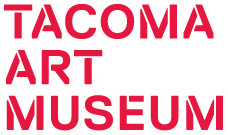Caroline Wogan Durieux
born New Orleans, Louisiana, 1896; died Baton Rouge, Louisiana, 1989
She graduated from Newcomb College with a Bachelor of Design degree (1916) and a second bachelor's degree in art education (1917). Durieux left New Orleans in 1918 to further her formal art training at the Pennsylvania Academy of Deign. She studied at the Academy until 1920; there, she gained exposure to modernist techniques and styles and established a relationship with the Philadelphia art community she would maintain throughout her art career.
Durieux moved to Mexico in 1936 where she began creating satirical works that poked fun at the upper classes.
Durieux returned to New Orleans where she became involved in the Vieux Carre art colony centered in the Arts and Crafts Club of New Orleans. She taught at the Club's New Orleans Art School and exhibited frequently at the gallery. In 1938, she assumed the directorship of the WPA Federal Art Project in New Orleans.
While in New Orleans, she also taught at Newcomb College between 1938 and 1943. In 1943, LSU hired her as an instructor in painting and drawing, and she moved to Baton Rouge. She received her MFA from LSU in 1949 and taught as a professor at LSU until 1963. Her research at LSU resulted in a new print-making process she named electron printing which involved radioactive ink. She also revived the nineteenth-century Barbizon School's print process of cliche verre and developed a method to add color to cliche verres.
Durieux's experiments with electron prints and her other work earned widespread acclaim, and she exhibited her work internationally throughout the century. She published two books of her lithographs, Caroline Durieux: 43 Lithographs and Caroline Durieux: Lithographs from the Thirties and Forties.
Person TypeIndividual
Terms
- New Orleans
- Baton Rouge
born Chicago, Illinois, 1953; died Portland, Oregon, 2023
born Salem, Oregon, 1869; died Seattle, Washington, 1956
born Baltimore, Maryland, 1810; died Baltimore, Maryland, 1874












